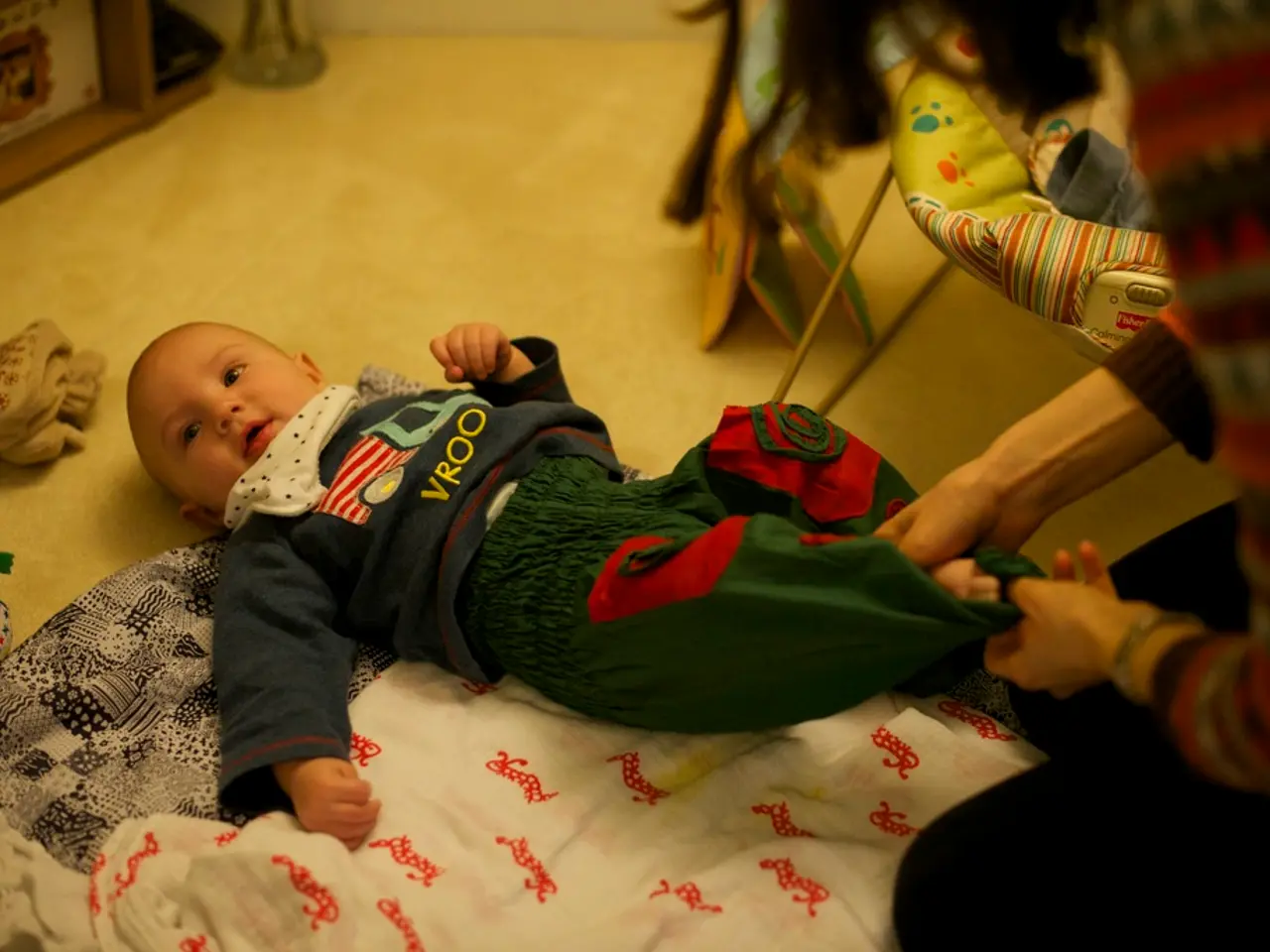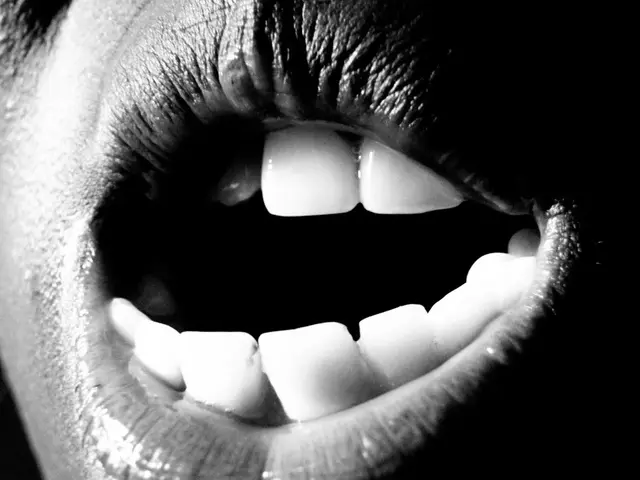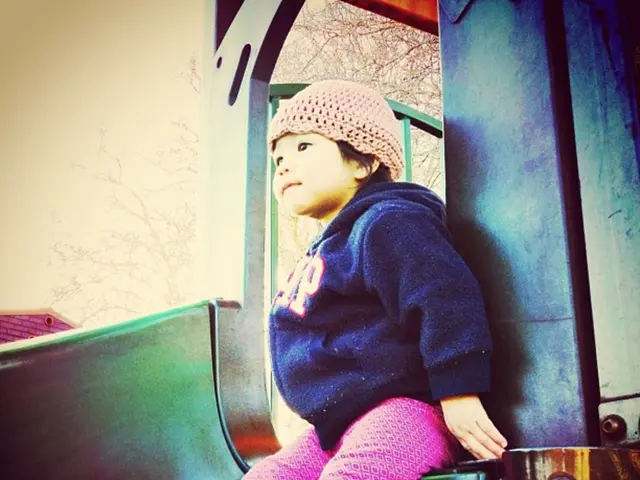Child Slips Off Bed, Strikes Head: Recognizing Signs of Injury
In the world of parenting, keeping a close eye on a baby's wellbeing is of utmost importance. Falls, though often not immediately apparent, can lead to nonfatal injuries in children, according to the U.S. Centers for Disease Control and Prevention (CDC). To ensure your little one stays safe, it's crucial to be aware of the signs to watch for after a fall.
Firstly, it's essential to provide a secure environment for your baby. Stationary activity centers are a safer choice compared to walkers that can tip or fall down stairs. Additionally, avoid letting kids play unsupervised on high porches, decks, stairs, or balconies. Babies can fall from high surfaces like beds, changing tables, and couches, so it's best to keep them away from these areas.
When it comes to preventing falls, securing TVs and furniture to the wall using mounts, brackets, braces, anchors, or wall straps can help prevent tip-overs. Similarly, car seats or bouncy seats should be placed on the floor instead of a chair or elevated furniture, like a table.
After a baby falls and hits their head, key signs to watch for include loss of consciousness or unresponsiveness, persistent crying or inability to be consoled, vomiting (especially repeated vomiting), unusual drowsiness or difficulty waking up, bulging or swelling of the soft spot (fontanelle), blood or fluid leaking from the nose or ears, seizures or convulsions, changes in sleeping patterns, irritability, increased fussiness or changes in mood, poor feeding or refusal to nurse or eat, difficulty balancing, coordination problems, or difficulty walking, unequal pupil size or dilated pupils, headache or sensitivity to light and sound (observed in older infants/toddlers), and behavioral changes such as confusion, slow thinking, or inability to concentrate.
Additional signs especially relevant for babies include crying when the head is moved, loss of interest in favorite activities or toys, and unusual emotional outbursts. If any of these symptoms appear after a fall or head injury, it is important to seek immediate medical attention. Emergency care is especially urgent if there is unconsciousness, repeated vomiting, seizures, bleeding, or unusual post-injury behavior.
Even if symptoms seem mild or absent initially, monitoring for delayed signs of concussion or brain injury is advised, and prompt medical evaluation should be arranged if concerns arise. It's important to remember that babies cannot verbalize their discomfort, so close observation by caregivers is critical.
Lastly, it's important to note that most of the time, babies aren't severely injured after falling off a bed, but it can happen. Keeping a baby awake for a long time could cause them to seem as if something is wrong when really they're just sleepy. Any behavior out of the ordinary should be checked out by a provider just to be safe.
By following these guidelines and staying vigilant, you can help ensure your baby's safety and wellbeing.








